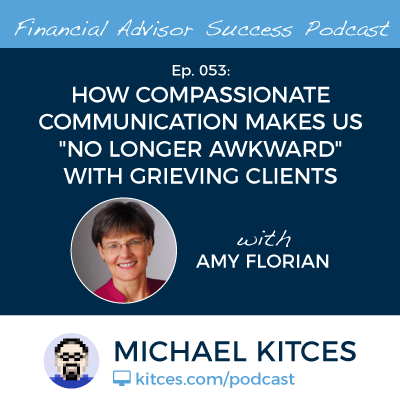For financial advisors who pride ourselves on the quality of the advice we provide to clients, it can sometimes be easy to lose sight of the importance of the more physical elements of our business that seem qualitatively irrelevant to the value of the guidance and recommendations we give to clients. However, as a tremendous amount of psychological research suggests, we should be careful not to overlook the more "theatrical" elements of a financial planning meeting – from the clothes we wear and the way we present information to clients, to the design and set up of our office – as the "theater" of financial planning actually does influence our clients, and their ability to implement our advice in a meaningful manner.
In this guest post, Dr. Derek Tharp – a Kitces.com Researcher, and a recent Ph.D. graduate from the financial planning program at Kansas State University – examines why it is important to both acknowledge and manage the theater of financial planning, particularly given the ways in which clients and prospective clients utilize the signals we as advisors send (both consciously and unconsciously) to decide everything from whom to hire, to what financial recommendations they should implement (or not!).
It is widely acknowledged that effective communication is an important aspect of what financial advisors do. However, something that is less commonly appreciated is the role that our environment plays in facilitating that communication. In his book, Suggestible You, Erik Vance examines the ways in which our suggestible minds are influenced by the stories we hear and the environments we hear those stories in. In particular, Vance examines the "theater of medicine", and its surprisingly powerful role in shaping the perceptions and beliefs of patients, which can, in turn, influence their physical health and well-being as well!
Additionally, the physical spaces we occupy (such as our office) can actually say a lot about us. Though laboratory research in financial planning is still very young, and scholars are only beginning to delve into how the offices of financial advisors can optimally be designed, some research from other fields has found that our physical environments can actually say even more about our personalities than some commonly used tools and assessments. At the heart of this are ways in which our personality manifests in certain behaviors which leave physical evidence within our environments that is really hard to fake – from mementos we collect and things intentionally place out for others to see, to more subtle clues such as the way we dress and organize things on our desk.
Ultimately, financial advisors have many options for trying to better manage the theater of financial planning... from sending signals of our conscientiousness through our clothing (e.g., formal dress) and communication style (e.g., controlled posture and calm speech), to signals of our competence through education and professional designations (e.g., CFP certification), and even signaling our knowledge of and solidarity with niche communities that we service... there are many ways in which we can seek to manage the "theater" of our financial planning to help our clients adopt and implement wise financial planning practices!

 Welcome, everyone! Welcome to the 54th episode of the Financial Advisor Success Podcast!
Welcome, everyone! Welcome to the 54th episode of the Financial Advisor Success Podcast! Welcome, everyone! Welcome to the 53rd episode of the Financial Advisor Success Podcast!
Welcome, everyone! Welcome to the 53rd episode of the Financial Advisor Success Podcast!
